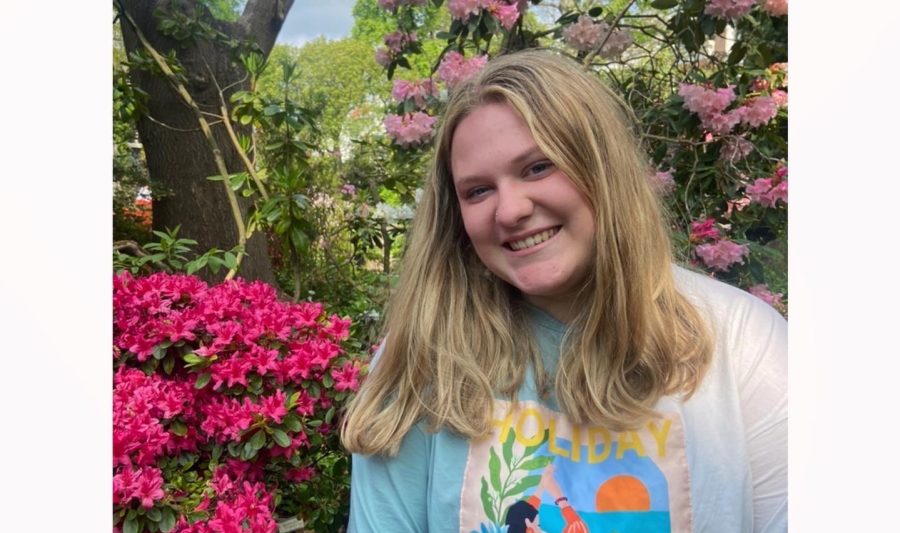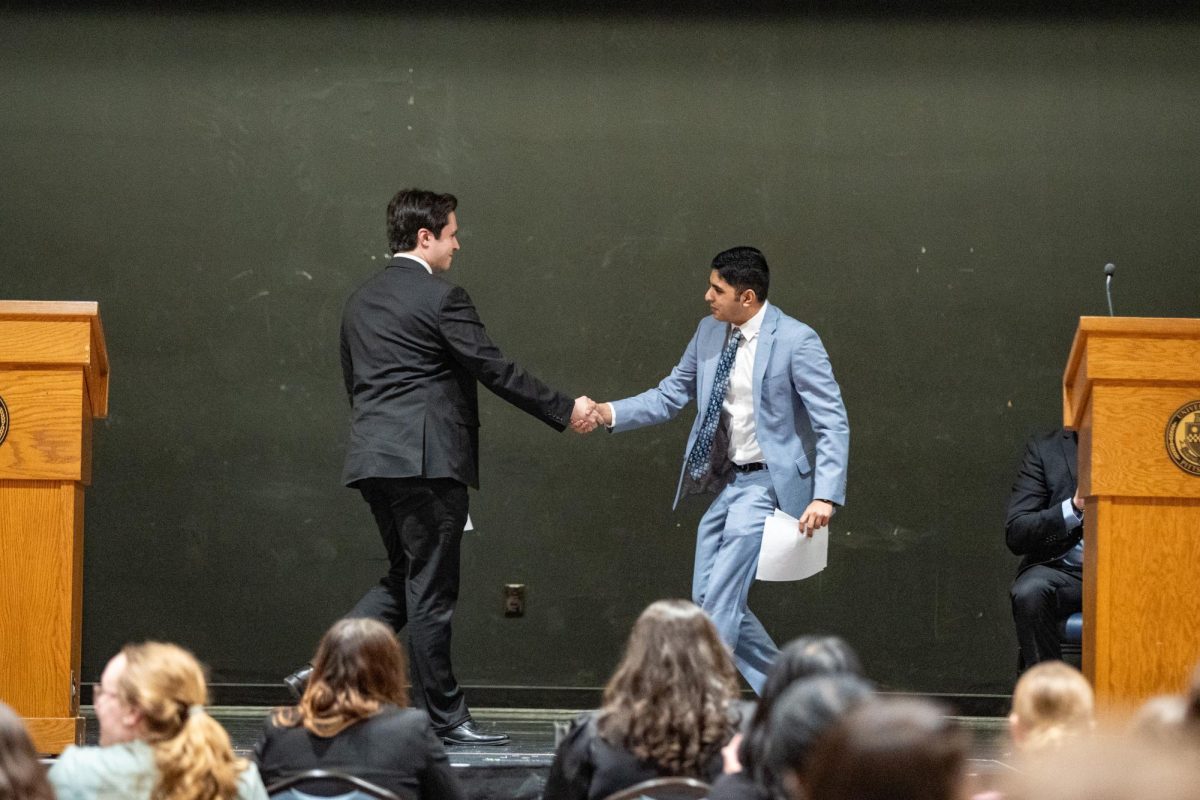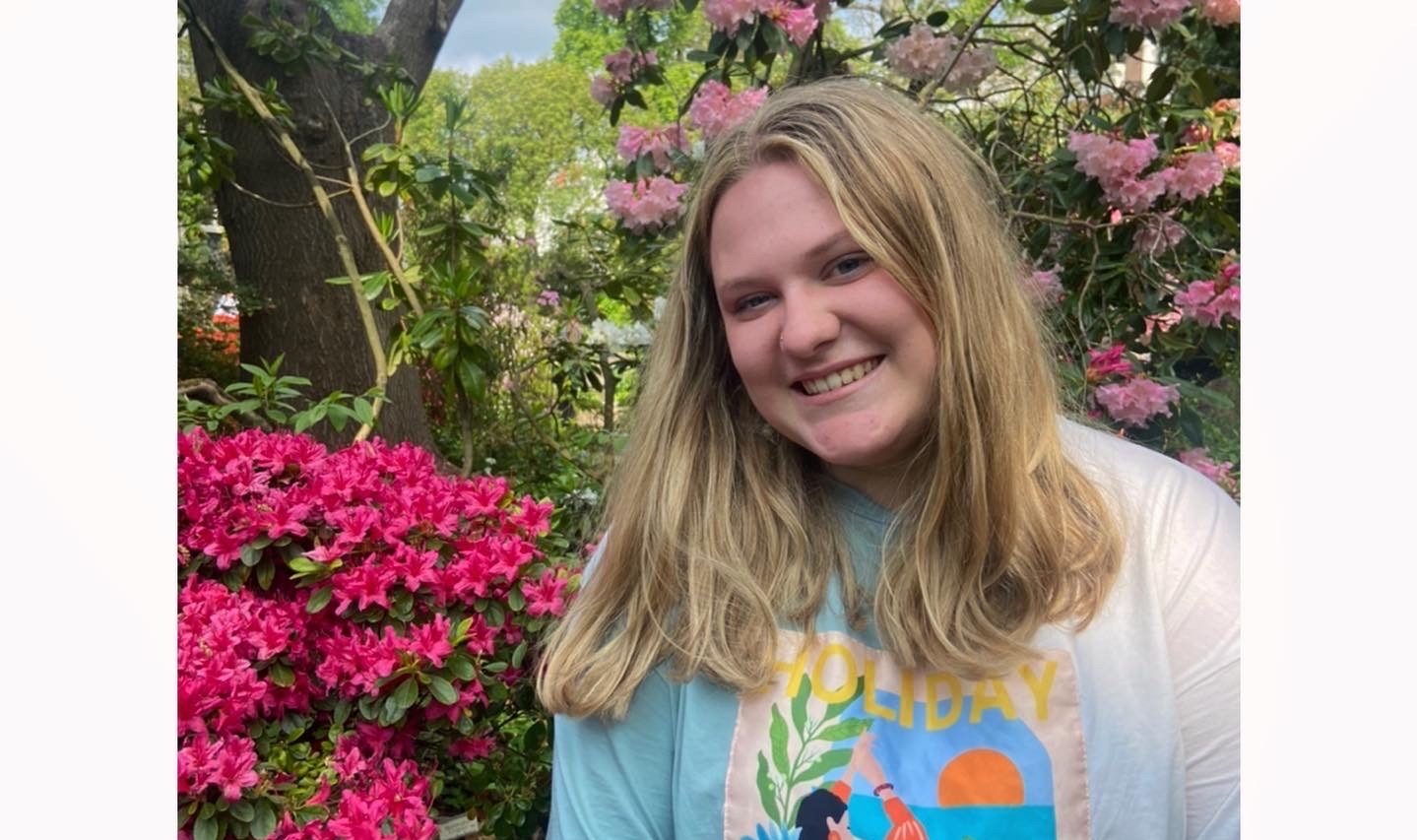Column | Rory Gilmore helped me discover journalism at Pitt
Image courtesy of Rebecca Johnson
Rebecca Johnson, editor-in-chief of The Pitt News.
April 21, 2023
Last weekend, as I’m realizing seniors tend to do, a friend and I were reflecting on our college years. She brought up that when I joined The Pitt News as a first-year, she knew it was going to become my thing.
This statement, which she said so casually, was shocking to me because I definitely did not know The Pitt News was going to become my thing, so to speak.
Like many Pitt students, I started college as a biology pre-med major. However, I’d always enjoyed writing more than organic chemistry, and I also really liked the television show “Gilmore Girls.” So, like any self-respecting Gen Z white woman, I sought to model my life after Rory Gilmore — a character I’ve since realized is quite problematic. Because I had no chance of attending Yale like Rory, I instead decided to try out her chosen profession of journalism.
My first lesson was that Rory is a terrible journalist and my second was that TPN is far better than any fictional depiction of college journalism.
When I think about the lessons I learned in college, the image that comes to mind isn’t a classroom or a homework assignment. It’s TPN’s office in the William Pitt Union. It’s Arial 11 point font on a Google doc or the hundreds of interview recordings I have littered in folders on my computer.
At the paper, I had the chance to cover stories that I still think about periodically. From Pittsburghers volunteering after the Tree of Life massacre to international students worried about immigration guidelines during the COVID-19 pandemic to issues within quarantine housing, I feel so fortunate that I got to help tell these stories.
I learned to make topics that are informative, interesting, and topics that are interesting, informative. I learned that every story is nuanced, but sometimes fact is crazier than fiction. Most of all, I learned the importance of finding a community.
Because I’ve worked at TPN all four years of college, almost every memory I have at Pitt is connected to the paper in some way. In March 2020, like other first-years on campus, I packed up my Tower B dorm room early, throwing my belongings into garbage bags and downloading Zoom, as news of the “coronavirus” circulated. As I watched parents and students pile food into cardboard boxes at Market to Go like we were in some low-budget dystopian movie, I glanced at a newsstand.
At the top of the stack, I saw the most recent copy of The Pitt News with an article, “Faculty assembly prepares for possible Pittsburgh pandemic,” I had written a week or so earlier. I grabbed about five copies — somehow sensing that an article where I put the phrase “social distancing” in quotation marks because no one knew what it meant at the time was something I wanted to hang on to.
From the start, the pandemic was really hard for me. I thrive with structure, so online classes and flexible deadlines weren’t an ideal situation. I like talking to new people, which meant staying in my room all day every day was isolating. I went through the worst depressive period of my life during my sophomore year.
That year, TPN kept me sane. It gave me some semblance of structure that I desperately craved. It allowed me to pour my energy into reporting the University’s COVID-19 response — which, at risk of sounding cheesy, gave me a sense of purpose. It helped me meet other people who are passionate about journalism, many of whom still work at TPN in some capacity. For some people, they found a community with their dance team or in their academic program, but for me, I found it in my college newspaper.
To Betul Tuncer, thank you for being the best managing editor and a great friend. Betul not only has a way with words, she’s one of the most caring people I’ve ever met, and I can’t imagine navigating my job as editor-in-chief without her. I’ll miss planning out our Sushi Bomb orders in the office and watching your face light up when you see a cool sticker, but I know the paper couldn’t be in better hands with you as EIC next year.
I also want to thank Jon Moss and Mary Rose O’Donnell, the former editor-in-chief and managing editor, respectively. They hired me as news editor and helped me believe I was talented enough to succeed in the position despite my imposter syndrome. Harry Kloman, TPN’s former news adviser, was an amazing teacher and mentor — even after he retired last semester. Martha Layne, last year’s news editor, was the perfect partner when we led the news desk together. I missed her so much around the office this year that I hung a poster warning writers against “wonky wording” with her face on it on my office door.
My friends, Stuthi Iyer and Hannah Goldstein, and my sister, Allison Johnson, you’re the best for letting me wax poetic about things going on at TPN that I know you didn’t care about. And to my mom, who I know was a bit concerned about my switch from science to journalism especially since the first article she read of mine was for sex edition, thank you for being supportive.
But most of all, thank you to TPN’s readers. You’re the reason we do this work, and I value all the feedback I’ve received — positive and negative. College journalism is vital. We help keep Pitt accountable, and it’s imperative that students are able to do it without interference from the University.
I’m the first person to remind writers that the word “unique” is banned at TPN. I think it’s overused and usually inaccurate. But I truly think unique is an accurate word to describe this year’s editorial board. The job of editor-in-chief isn’t easy — in fact, it’s one of the hardest things I’ve ever done — but the talent among TPN’s writers and editors made it easier.
It’s weird to think that this column is the last byline I’ll (probably) ever have in The Pitt News, but it’s weirder to think that I might never have joined the paper without a little push from a television show. So, my sage advice at the old age of 22 is to try things that sound interesting to you and don’t let preconceived notions about what you should be doing limit your opportunities — you might find something you love.




